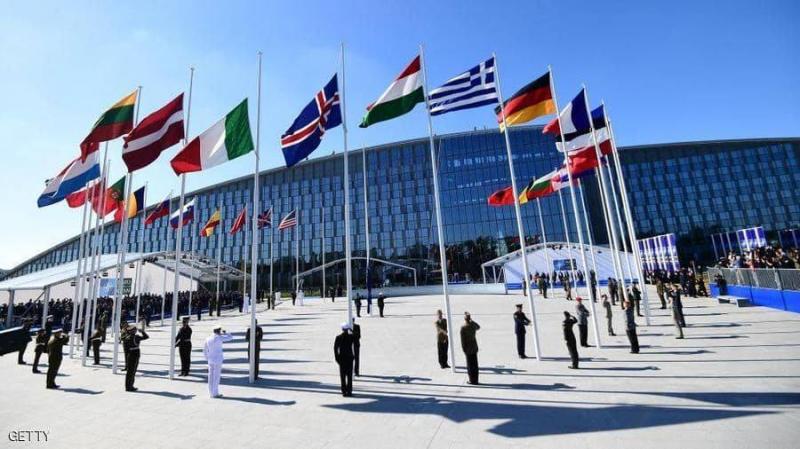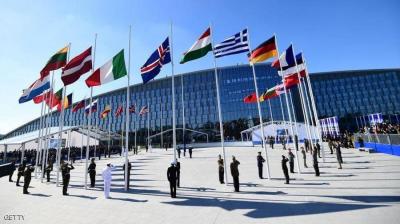Under the title "The Russia-NATO Crisis: Is the World Returning to the Era of 1955?", Sky News published an article highlighting "a state of uncertainty that the world is experiencing" amid the exchanges between Russia and NATO, characterized by threats of escalation and attempts at de-escalation. This situation has produced conflicting scenarios about what the world may look like in the future: whether it will revert to a bipolar world, become multipolar, or witness a non-aligned force emerging in the heart of Europe.
Last Wednesday, NATO announced the reduction of the number of accredited members of the Russian diplomatic mission from 20 to 10 and expelled 8 Russians on charges of being undercover intelligence officers. Russia immediately expressed its dissatisfaction, with Deputy Foreign Minister Alexander Grushko stating that NATO's expulsion of Russian diplomats invalidates previous statements about normalizing relations, asserting that no one believes NATO anymore.
Conversely, NATO Secretary General Jens Stoltenberg's remarks leaned towards calming tensions with Russia to avoid a return to the Cold War (1947-1991) and an arms race. He emphasized the importance of communicating with Moscow and maintaining relations that have reached an all-time low.
NATO's Strategy in Flux
Strategic expert Brigadier General Samir Ragab explained in a conversation with Sky News Arabia that the contradictory statements from NATO members reflect the ongoing struggle between maintaining the principles on which NATO was founded—hostility towards Russia—and the desire of some European member states to build relations with Russia and move away from absolute hostility.
Ragab elaborated on the division in European countries' political positions toward Russia, depending on their geographical proximity. Eastern European countries like Poland and Lithuania align with U.S. policy in opposing Russia, while Southern European countries like France, Italy, and Germany seek to resolve the crisis with Russia, as evident from French President Emmanuel Macron’s call to overcome antagonism with Moscow. Meanwhile, Western European countries tend to remain distant from confrontation.
Breaking Free from Washington
After NATO lost Turkey as a defensive line against Moscow by engaging in arms deals with it, Paris and Berlin proposed the idea of establishing a European defense force independent of Washington's policy toward Moscow, according to Ragab. This has raised concerns in Washington about Europe potentially becoming a competitive force open to China and Russia, hence imposing restrictions to limit European-Russian relations.
The World Ahead
Movements in the Pacific, like the AUKUS alliance led by Washington, the submarine deal with Australia, the China-Taiwan crisis, U.S.-Japanese military maneuvers, and Russian interference in Crimea point to two possibilities: first, the formation of a new multipolar world, and second, a world of competing factions, according to Ragab. The strategic expert underscores that the world "will not remain beholden to Washington's strategy."
As for the possibility of new alliances forming, he anticipates a reconfiguration of coalitions based on the outcomes of wars in Afghanistan, Syria, and Iraq, with an Eastern bloc (comprising China, Russia, North Korea, Iran, and possibly Pakistan) emerging alongside a Western bloc led by the U.S., which includes Australia and India due to its border disputes with China.
Reviving the Spirit of Non-Alignment
Ragab expects changes within the Western bloc under German leadership, establishing a non-aligned camp, while France may initiate a European entity beginning with a non-aligned approach, eventually strengthening ties with the Eastern bloc in the field of arms.
The principle of non-alignment, famously adopted by Egypt, India, and Indonesia during the 1955 Bandung Conference, asserted their stance of neither dependency on nor hostility toward the Soviet Union or the United States, with their policies focused on common interests aimed at reducing the likelihood of conflict.
Ragab describes the current situation as a "state of uncertainty" amid ongoing escalation and unclear strategies from the parties in conflict.




